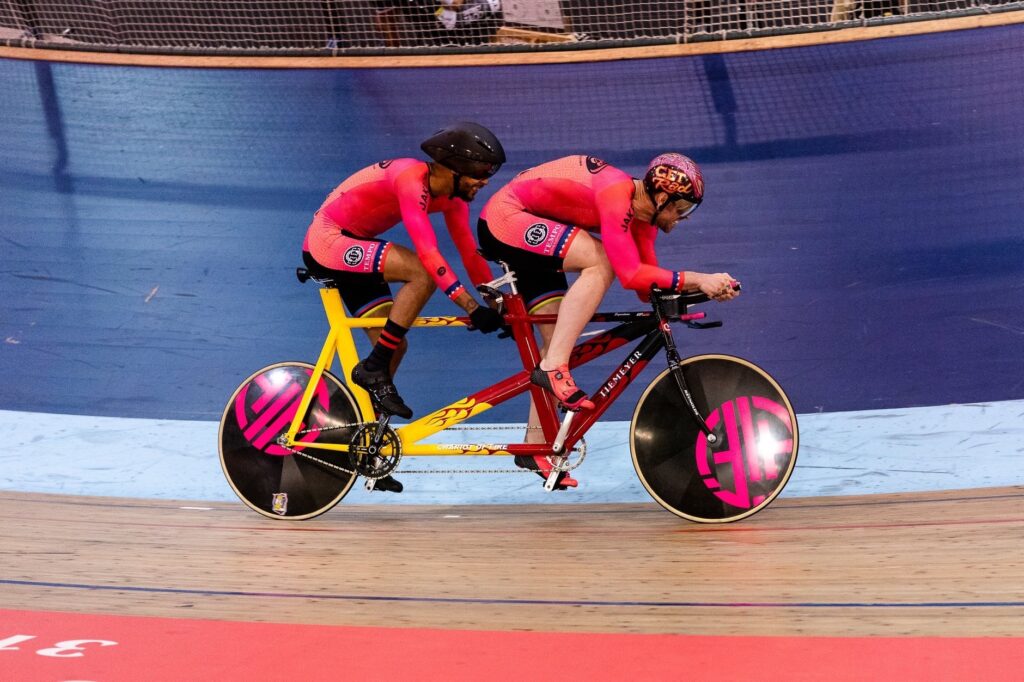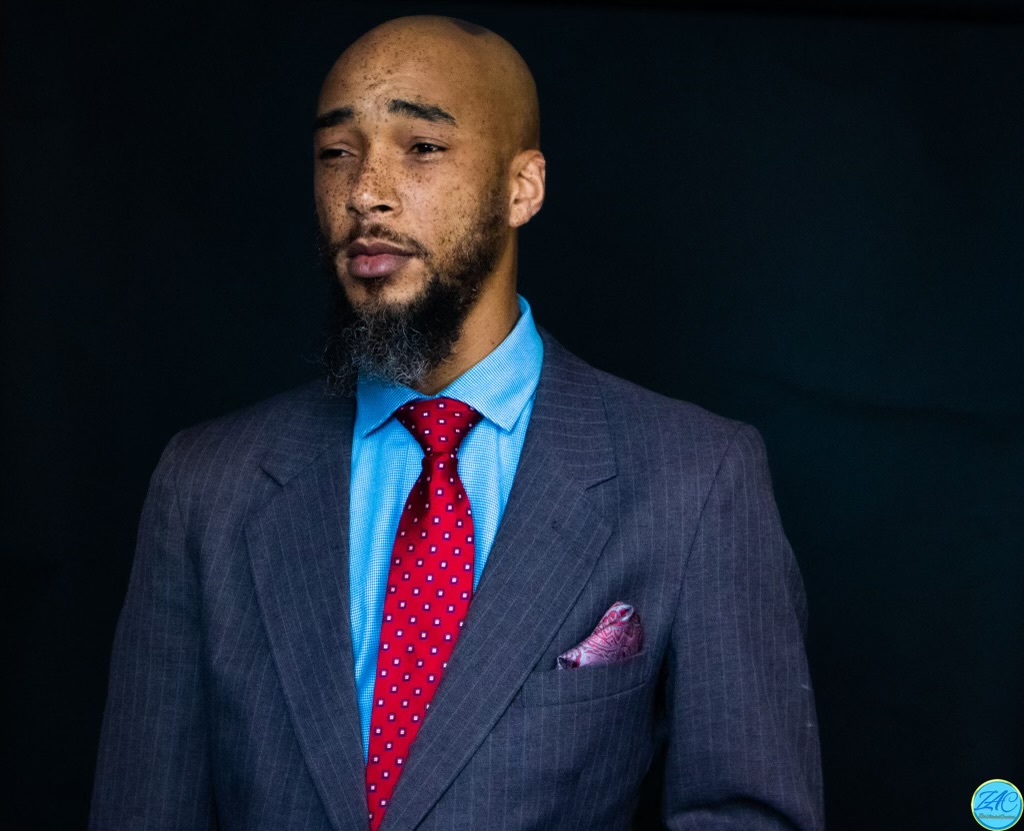A retired Army veteran discovers adaptive sports following unexpected vision loss.

Justin Sutton has always lived by a belief that there are no stop signs in life, only speed bumps. But not all speed bumps are small, as the U.S. Army veteran would find out 10 years after retiring from military service.
One morning in 2013, Sutton woke up to a startling realization: he couldn’t see. His vision had almost completely disappeared with no warning.
“It was the most shocking and unusual night of my life,” recalled the Winter Park, Florida native. “It was actually the start of my new life.”
Through the VA, Sutton underwent various treatments and surgeries. However, doctors couldn’t immediately pinpoint the reason for his abrupt vision loss. By the end of 2014, the vision in his left eye had plummeted from 20/20 to light- and dark-colored movement.
Shortly thereafter, Sutton finally received a diagnosis: HLA-A29-Positive Uveitis, otherwise known as Birdshot, a rare form of bilateral posterior uveitis that causes inflammation of the choroid and retina. He was told treatment would need to be aggressive, and there was no time frame for how long his limited vision would remain.
Sutton then sent out inquiries to 25 different specialists from around the country seeking help. The first to respond was Dr. C. Stephen Foster from the Massachusetts Eye Research and Surgery Institute.
“Dr. Foster responded within 15 minutes. He was like, ‘how fast can you get here’?”
Sutton began commuting to the Institute, where Dr. Foster orchestrated chemotherapy and other treatments. It was a long, grueling process that eventually led to the right eye deteriorating as well.
“It was a rapid scramble to save the usable vision that I had in my right eye.”
In 2015, Sutton was told he had developed autoimmune retinopathy, and underwent more treatment. It was during a 45-day stint in blind rehabilitation at the VA that he was first introduced to adaptive sports through an obstacle course race.
“For me, that was a major milestone. If I could do this, I could do anything.”
During his next stay in blind rehab, Sutton was exposed to cycling for the first time. He was invited to a cycling camp at the U.S. Olympic Training Center and eagerly accepted.
“I was super excited. Who doesn’t want to go to the Olympic Training Center?”
Once there, Sutton took to the sport immediately, calling it “one of the best experiences of my life.” He felt a sense of belonging by the staff and other participants. The biggest surprise came at the end of the camp.
“They came to me and (said) if you put some time and energy into this, you could really be something in the sport.”
Sutton contacted Simon Bennett, a USA Cycling and USAT Triathlon Level 1 coach. Bennett, an 11-time gold medalist, had also been at the cycling camp Sutton attended and enthusiastically agreed to coach him beginning in 2018.

Sutton remembers the first few races he competed in.
“The field demolished me. I came in dead last.”
But the gladiator mentality that had gotten him through surgeries and chemo treatments didn’t allow Sutton to give up. Neither did his coaches.
“No one would let me stop. That push (created) a never-be-defeated mantra. It turned into a catalyst. You almost have a fire, especially if you have any type of competitiveness in you. You have a newfound purpose and drive, because now you know there’s something else in life that you weren’t able to do previously that you can excel in.”
Sutton trained harder despite his continued battle with eye disease. He was also trying to get equipment to compete in the Para Track National Championships the following July. Thanks to the United States Association of Blind Athletes (USABA), Sutton was able to obtain what he needed to compete. He won two silver medals and a first-place finish in tandem cycling.
The coronavirus pandemic shut down all competitions in 2020. Once Sutton was able to resume racing, he competed in his first road race at the Florida Time Trial Championships.
By 2021, Sutton was competing regularly on the track and road circuits. He won two silvers at the U.S. Paralympic Open hosted by Toyota, winning in both the 30- and 70-kilometer events. He captured another pair of silver medals in the one-kilometer and four-kilometer races at the 2021 Para Track Nationals.
Sutton is grateful to USABA, Foreseeable Future and other organizations who have paved the way for blind cyclists like himself to succeed.
“It’s amazing coming from where I started to now, being in the top 10. The people and organizations that assisted me made it possible.”
Sutton does his part to advocate for blind and visually impaired individuals through the Justin Sutton Foundation. The goal of the nonprofit is to remove barriers to adaptive sports through inclusivity, transparency and empowerment. He believes it takes a village for anyone to be successful.
“There’s no facet in your life that isn’t positively affected by participating in adaptive sports. It gives you a reassured feeling of personal independence. The attention to training, the focus, the drive, self-motivation… there’s all types of traits that are enhanced and fine-tuned as you grow in your respective sport.”
Sutton enjoys spending time with his two daughters, 19-year-old BreShae and nine-year-old Payton. He hopes to add gold to his medal collection at Para Track Nationals this year, and plans to continue bringing awareness to his eye disorder. He’s also learned leather making, copper tooling and painting.
“I have a creative mind. I use creating as a form of therapy.”
